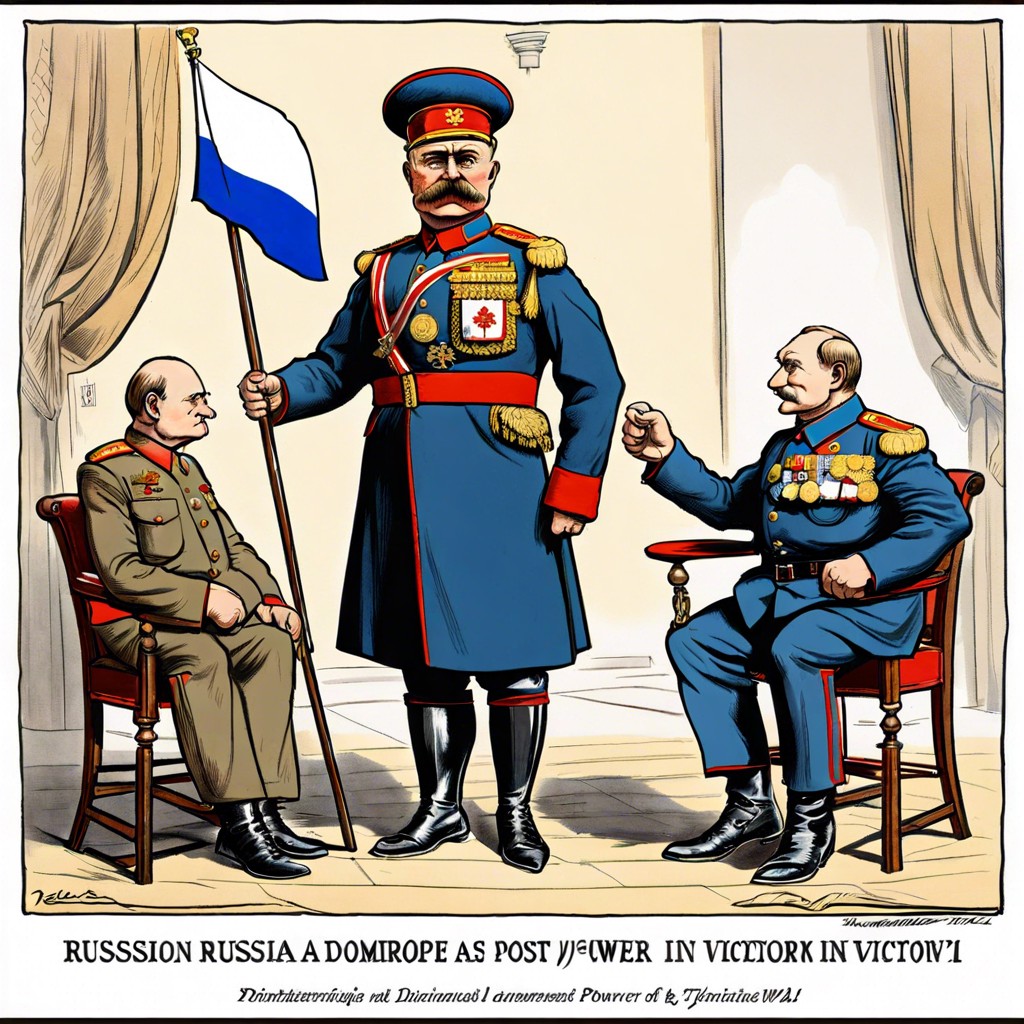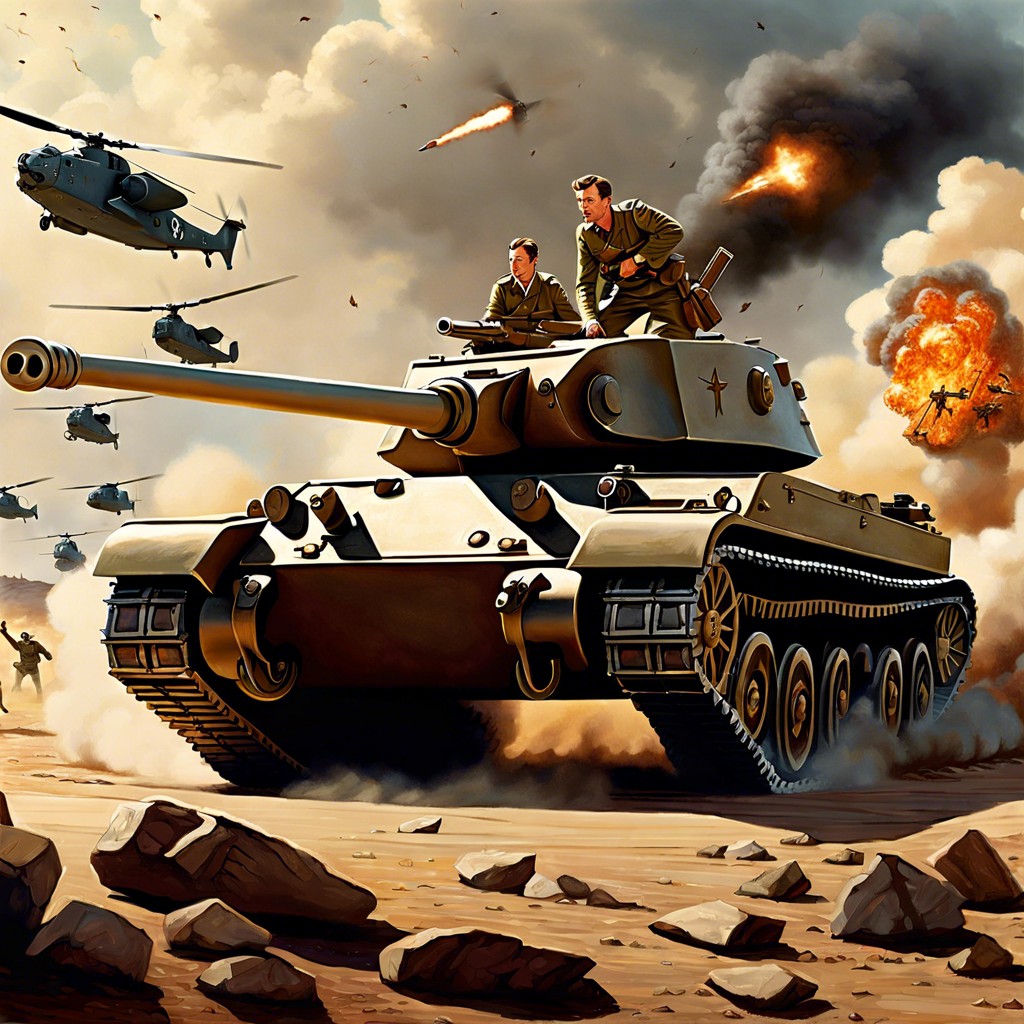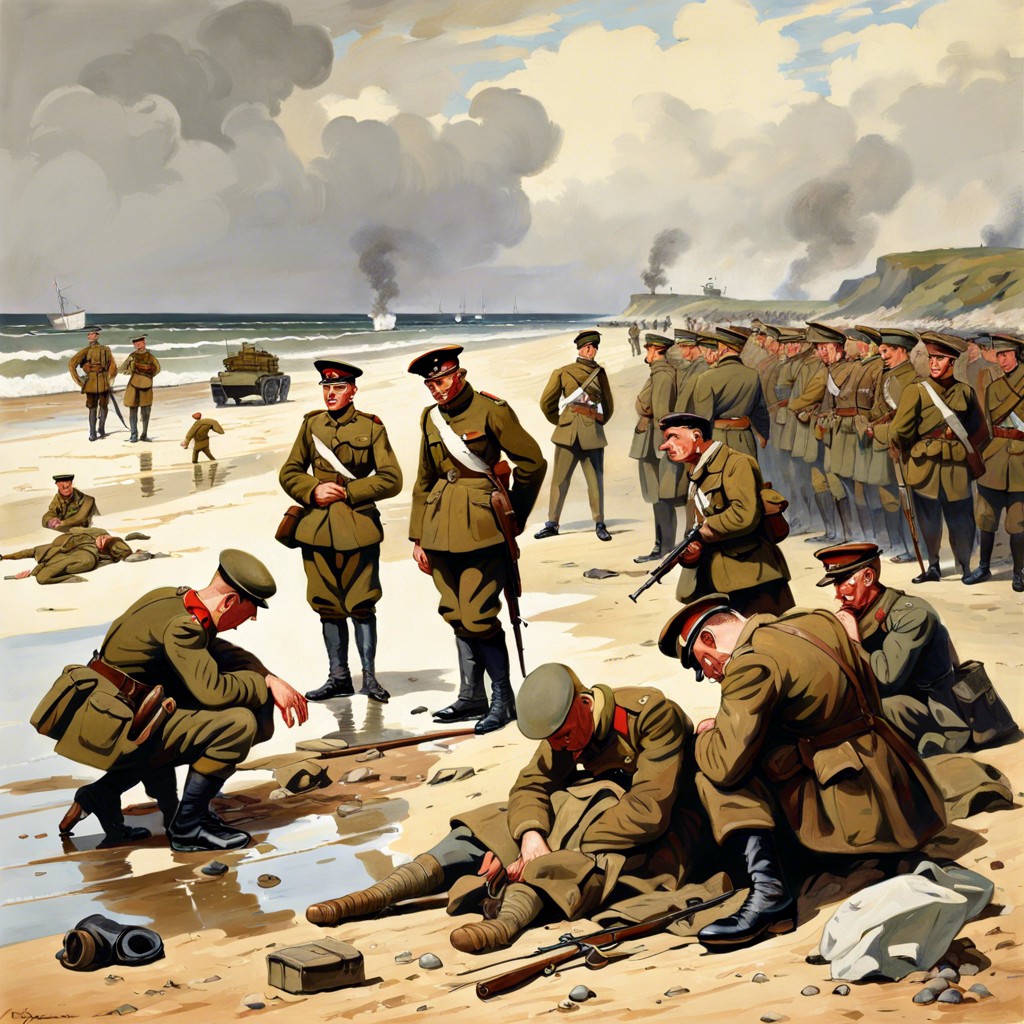Discover how an alternate history where Russia won WW1 could have reshaped the political landscape of the 20th century.
Imagine a world where Russia emerged triumphant from the Great War, altering the very fabric of history as we know it. European borders would look like a Picasso painting gone wild, and economies? Expect a roller coaster with loops. With tsars ruling the roost, Russian society would be all kinds of fancy and funky. Oh, and technology and culture? Prepare for an intellectual rave with scientists and artists headlining the stage. Ready to rethink everything you thought you knew? Dive in!
Key takeaways:
- European borders redrawn, powers shifted dramatically.
- Global economy altered, Russia a trade powerhouse.
- Russian society: Tsarist, slow reforms, mixed influence.
- Tech progress fast-tracked, space exploration, medical advancements.
- Cultural exchange: Literature, art, film, music revolutionized.
European Geopolitical Shifts

Imagine a world where Russia emerged victorious from World War I—things would get very interesting! For starters, the map of Europe would look drastically different.
France and Britain might not have been the powerhouses they became. With Russian dominance, central and Eastern Europe could have taken quite a different shape. Poland, as we know it today, might never have regained independence. Instead, it could have remained under Russian influence or been partitioned differently.
The Austro-Hungarian Empire? Maybe it wouldn’t have crumbled so entirely. With Russian victory, perhaps some boundaries between empires would have been redrawn rather than obliterated.
Germany, the star of many a historical cliffhanger, likely wouldn’t have faced the same harsh penalties outlined in the Treaty of Versailles. Without these penalties, the brewing ground for WWII might have been a bit… less brew-y. Or differently brew-y. But let’s not open that dear can of worms.
The Balkans, already a hotbed of tension, would have seen Russian influence surge. Serbia and its neighbors, potentially snug under Russia’s expansive wing, could’ve seen shifts in their development and power dynamics.
And what about countries like Finland or the Baltic States? They likely wouldn’t have gotten their taste of independence just yet. More likely, they’d remain firmly in the Russian sphere of influence, over which Russia would have held a tighter grip. The ripple effect could extend far and wide, reshaping alliances and rivalries in ways almost unimaginable.
Now, grab a historical map, stretch your imagination, and consider all those passport stamps one might need in this alternate European landscape. Oh, the places you’ll go! Or maybe not.
Impact On the Global Economy
Imagine Russia winning World War I. The global economic landscape would be as topsy-turvy as a cat in a room full of rocking chairs. First off, say goodbye to the Treaty of Versailles. No heavy German reparations, and possibly, a less embittered Germany. This changes the game for Europe’s economy, potentially preventing the devastating hyperinflation in the Weimar Republic.
Next, Russia, basking in victory, likely avoids the Bolshevik Revolution. No Soviet Union means a vastly different trajectory for global trade. Instead of communist isolation, a victorious, perhaps more liberal, Russia is trading like there’s no tomorrow. They could’ve been Europe’s ATM, bankrolling allies with a steady flow of resources. Think oil, gas, timber—hello, energy surplus!
Now, consider the U.S. Without the Bolshevik push, the Red Scare might lose its fangs. Reduced fear of communism means fewer trade barriers and a more collaborative global market. America could find another rival besides the USSR, possibly investing more in commercial partnerships than in military technology.
All in all, money would be flying in different directions, alliances redrawn, and maybe the Great Depression – a slightly smaller monster.
Transformation of Russian Society and Government
Imagine a Russia without the Bolshevik Revolution—less Lenin, more czar. The Tsarist regime, bolstered by victory, would likely have doubled down on its autocratic rule, but with a patriotic twist. People’s spirit at an all-time high, the government might have introduced strategic reforms to placate the masses, while still holding the reins tight.
Peasant frustrations could have been soothed with land reforms, but expect slow progress. Think: one step forward, two steps back. Meanwhile, the middle class, buoyed by economic stability, might have seen a surge in political influence, advocating for a mild dose of democracy.
The Russian Orthodox Church would have enjoyed a resurgence, basking in the glory of divine favor supposedly guiding Russia to victory. Education and science? Probably a mixed bag. Innovators would have faced tighter governmental scrutiny, yet the state might have sponsored more, out of national pride and the desire to show off on the global stage.
In the world of the arts, no avant-garde revolutions. Instead, an outpouring of patriotic themes and classical revival. Picture composers and painters glorifying the might of Mother Russia—irresistible material for a burgeoning propaganda machine. All in all, a Russia both gliding on triumph and tiptoeing around simmering unrest.
Altered Course of Technological and Scientific Developments
With Russia emerging victorious in WW1, the trajectory of technological and scientific progress would have taken a vastly different path. Imagine an earlier Soviet Union, buoyed by triumph instead of revolution.
Firstly, the world might have seen a rapid expansion of Russian industrial capacity. Allied with richer European spoils, Russia’s investment in scientific research could have been substantial, making the 1920s a hotbed of innovation rather than upheaval.
Secondly, consider the potential acceleration of space exploration. With resources at their disposal, Russian scientists, possibly under the visionary influence of figures like Konstantin Tsiolkovsky, might have launched the space race decades earlier.
Lastly, medical research would likely have gained momentum. With resources redirected from war to healthcare, significant advancements in treatments for diseases could have emerged sooner. Think fewer battles, more breakthroughs.
Cultural and Intellectual Ramifications
Imagine Dostoevsky’s broodiness meeting Picasso’s eccentricity at a tea party! A Russian victory in WW1 could have plunged Europe into a whirlwind of cultural exchange much sooner. Russian literature, with its existentialist themes, might have influenced Western authors to pen more introspective works. Meanwhile, European avant-garde movements could have seen earlier incorporation of Russian futurism, leading to some wildly eclectic art exhibitions.
Think about education—Russian intellectuals might not have fled in droves. Universities could have become hotbeds for revolutionary ideas rather than bastions of orthodoxy. Such a mix might’ve led to philosophical mashups even more bizarre than that weird cousin’s casserole at Thanksgiving dinner.
The Russian film industry, then in its infancy, could have catapulted right alongside Hollywood, perhaps bringing a unique mix of Soviet-style realism and Hollywood glamour. Who knows? We might have even seen a Bolshevik musical extravaganza!
In music, Western classical compositions might’ve picked up some uniquely Russian undertones, creating symphonies that make you feel like you’re trudging through a Tchaikovsky-inspired snowstorm, but loving every frosty second.




